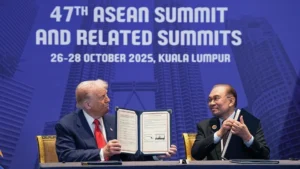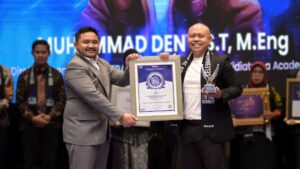Yogyakarta — At a recent lecture held at Masjid KH Sudja, Yogyakarta, Mukhlis Rahmanto of Muhammadiyah’s Central Leadership Council emphasized the enduring relevance of Prophet Muhammad’s example in managing family finances. His message underscored that wealth is a trust from God, to be handled with integrity, balance, and social responsibility.
Mukhlis began by portraying the Prophet as “a walking Qur’an,” whose financial practices embodied honesty and generosity. Despite restrictions unique to his role—such as being prohibited from receiving zakat—he consistently encouraged giving the best of one’s wealth in charity. Even small amounts, he noted, were offered in their finest form, reflecting a principle of excellence in giving.
The Prophet’s reputation as al-Amīn (the trustworthy) extended into commerce. By managing entrusted capital with transparency and fairness, he built a model of ethical investment that resonates with today’s concept of murābaḥah in Islamic finance. This approach highlights the importance of disclosing costs and profits openly, ensuring trust between partners.
Mukhlis outlined a framework for family financial management rooted in Islamic teachings. Needs were categorized into essentials (ḍarūriyyāt), secondary needs (ḥājiyyāt), and tertiary comforts (taḥsīniyyāt). Essentials now include not only food, clothing, and shelter, but also healthcare and education. He warned against being driven by syahwat—excessive desires fueled by advertising and trends—such as the unnecessary pursuit of the latest gadgets.
To provide practical guidance, he recommended the 50-30-20 formula: 50 percent of income for essentials, 30 percent for additional needs, and 20 percent for savings or investment. Gold, whether purchased outright or through installment plans, was cited as a permissible and prudent investment, given its status as a commodity rather than currency.
Charity and zakat were presented as non-negotiable pillars of financial ethics. Mukhlis detailed the calculation of zakat on gold and professional income, stressing that wealth must be purified through giving. He also reminded attendees that a husband is obligated to provide for his family, while a wife’s income remains her own property, though it may be shared voluntarily.
The lecture also touched on contemporary issues such as foreign currency transactions. While permissible for urgent needs like pilgrimage, speculative forex trading was deemed impermissible due to its resemblance to usury.
Closing his remarks, Mukhlis urged families to view wealth as a divine trust, to be managed with discipline, fairness, and compassion. By following the Prophet’s example, he argued, households can achieve not only financial stability but also spiritual harmony—building families that are both prosperous and principled.











